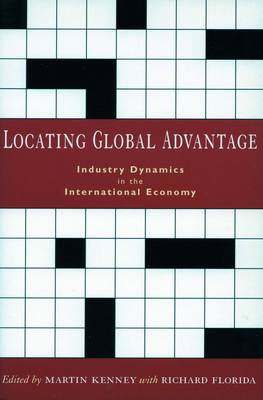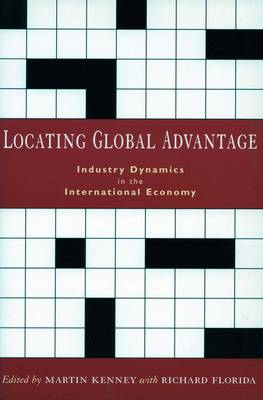
- Retrait gratuit dans votre magasin Club
- 7.000.000 titres dans notre catalogue
- Payer en toute sécurité
- Toujours un magasin près de chez vous
- Retrait gratuit dans votre magasin Club
- 7.000.000 titres dans notre catalogue
- Payer en toute sécurité
- Toujours un magasin près de chez vous
Locating Global Advantage
Industry Dynamics in the International Economy
Description
What are the forces that are driving firms and industries to globalize their operations? This volume explores how specific industries have organized their global operations through case studies of seven manufacturing industries: garments and textiles, automobiles and auto parts, televisions, hard disk drives, flat panel displays, semiconductors, and personal computers. Based on long-term research sponsored by the Sloan Foundation, the chapters provide readers with a nuanced understanding of the complex matrix of factor costs, access to inimitable capabilities, and time-based pressures that influence where firms decide to locate particular segments of the value chain.
The book examines globalization within the context of five factors affecting locational decisions: advances in transportation and communication; the clustering of knowledge assets; the drive to reduce cycle times; the commodification of existing products; and the relative advantages of proximity to customers. The case studies are framed by Paul Deguid's Preface on the significance of power in value chains and Bruce Kogut's conclusion on the importance of knowledge in locational decisions. Together, the chapters reveal a remarkable diversity of responses across industries to these forces, and suggest that any understanding of globalization must appreciate this diversity.
This volume is ideal for both MBA and undergraduate students studying the location of economic activities by multinational firms.
Spécifications
Parties prenantes
- Editeur:
Contenu
- Nombre de pages :
- 304
- Langue:
- Anglais
- Collection :
Caractéristiques
- EAN:
- 9780804747585
- Date de parution :
- 18-11-03
- Format:
- Livre broché
- Format numérique:
- Trade paperback (VS)
- Dimensions :
- 155 mm x 228 mm
- Poids :
- 489 g






